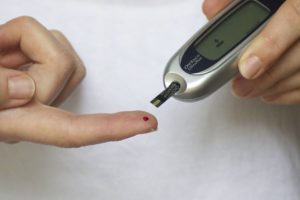Non-Communicable Diseases are the Most Common Cause of Death in Africa
By Lidia Shafik, Key Correspondent for the Irish Forum for Global Health
Non–communicable diseases (NCDs) were a priminent topic at this week’s Global Health Exchange conference, held in Dublin’s RSCI. NCDs are the most common cause of death in the developing world. This is contrary to the popular belief that infectious diseases, usually involving creep-crawly worms, pose the main threat in low income countries. This is, as we now know, incorrect. This is positive news, for with the right resources and actions the four key risk factors for NCDs – alcohol, tobacco, diet, and exercise – can potentially be modified by populations to reduce mortality from NCDs.
Inadequate diets, based on carbohydrate rich and nutrient poor foods, e.g. rice, fufu in African countries, have led to an increased risk of diabetes.

Approximately 1.8% of the world’s GDP is spent in the diabetes sector, but, in spite of this, more and more diabetics are not managing their disease well and experience major complications such as renal failure, lower limb amputation, coronary heart disease, and stroke.
But fear not, all hope is not lost. I’m happy to report that there is progress being made on reducing these statistics in the developing world. For example, Professor Richard Firth, UCD, has made great progress towards opening a NCD/diabetes centre in Kpalime, Togo. For an estimated price of just €40,000-50,000 for the building, and costs of training Togolese nurses in Ireland, it seems this centre is within reach.
Moreover, Irish NGO GOAL designed a Nutrition Impact and Positive Practice approach to tackle underlying behavioural causes of malnutrition. This scheme focuses on three areas: practical behaviour change sessions, micro-gardening and participatory cooking demonstrations. Evaluations suggest that, from 2012 to 2016, diet diversity in 2,991 children aged 6-23 months who reached graduation increased from 28% on admission to 71% on graduation.
These are just a few examples of the great work being done by organisations and individuals to combat the ever-growing problem of NCDs in the developing world. Maybe the cup is half full after all.
6th November 2018
CATEGORIES
- Equity in Action Blog
- Training Programmes
- Sponsorship
- Vaccine Equity
- Get Global – Global Health Talks
- Student Outreach Team
- Get Global Young Professionals Talk Global Health
- Global Health Matters – Live Event Series
- Global Health Matters – IGHN Live Event Series
- An initiative of Irish Global Health Network
- ESTHER Ireland and ESTHER Alliance for Global Health Partnerships
- Global Health Matters – Webinar Series
- ESTHER
- IGHN Conferences
- Global Health Conference 2020
- Women in Global Health – Ireland Chapter
- ESTHER Partnerships
- Weekly Webinar Series
- 4th Global Forum on HRH
- Access to Medicines
- Archive Page Weekly COVID Webinars
- Clean Cooking 2019
- Climate Change and Health Conference 2017
- Conference Abstracts
- Conference Materials
- Covid FAQ
- COVID Funding Opportunities
- COVID-19
- COVID-19: Gender Resources
- Dashboard and online resources
- Education
- ESTHER Alliance
- Events
- Events & News
- Funding covid
- Global Health Exchange 2018
- Global Health Exchange 2019
- Global Health symposium 2019
- Health Workforce/HRH
- Homepage Featured
- Homepage recent posts
- IFGH 2011-2012 Conference and Events
- IFGH 2014 Conference
- IFGH Multimedia
- Irish AIDS Day 2017
- Irish News and Feeds
- Key Correspondent Articles
- Key Correspondent News
- Maternal Health
- Multimedia
- News
- News & Events
- Newsletter
- Opportunity
- Our LMIC's Resources for COVID19
- Partner Country News and Feeds
- Past Events
- Policy
- Presentations
- Recurring events
- Reports & Publications
- Research
- Resources
- Student Outreach Group
- Students Corner
- TEDTalks
- TRAINING COURSES FOR HEALTH CARE PROFESSIONALS
- Uncategorized
- Upcoming Events
RECENT POSTS

Imagine a world without nurses

Making Therapy Accessible: Reimagining Mental Health Through Traditional Healing and Language by Talha AlAli

Decolonisation as a framework for Youth Partnership in Global Health by Arwa Hany Sharaby

“Fight the bullies!”

SOT Pre-Conference Event 2025

